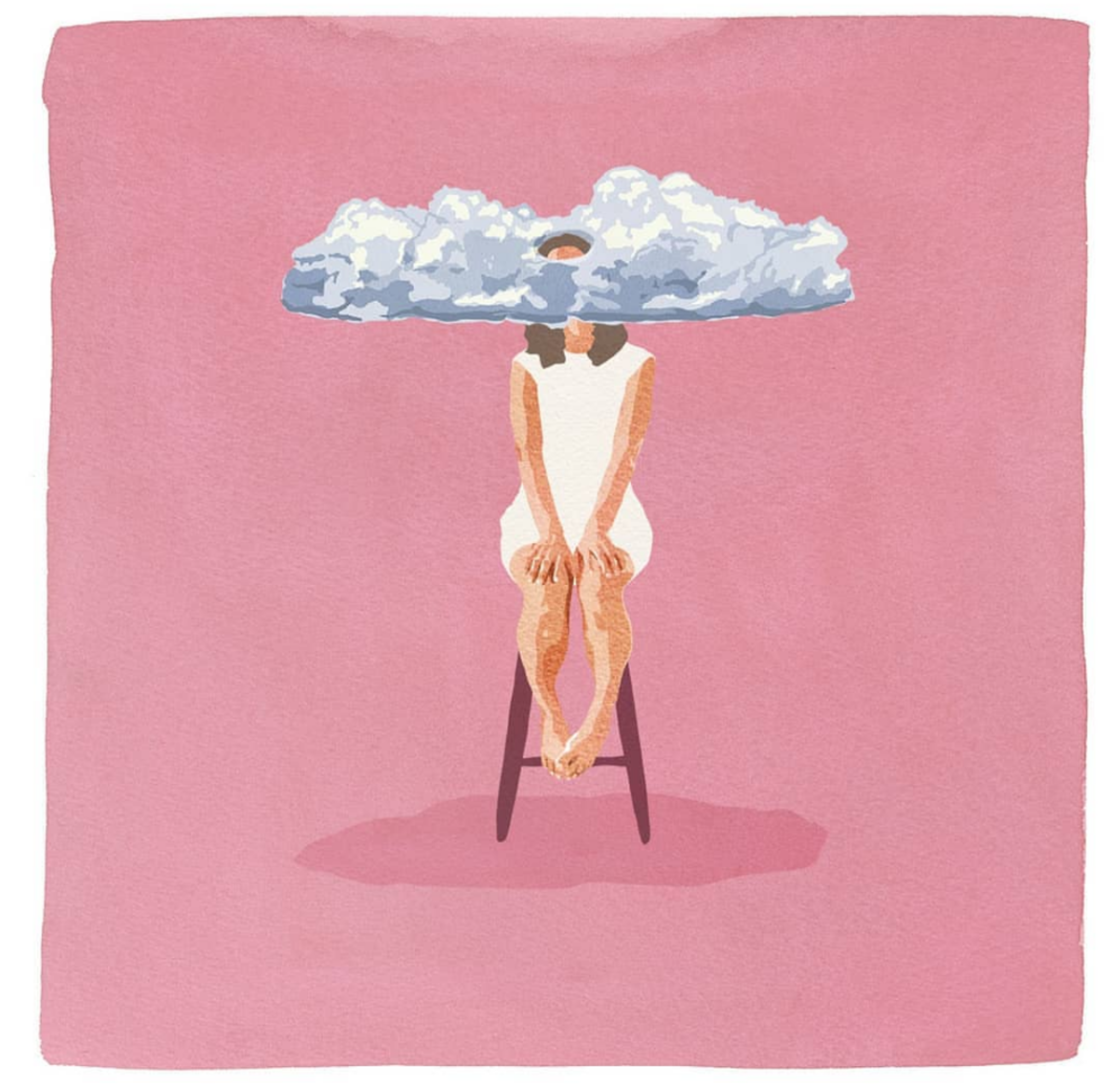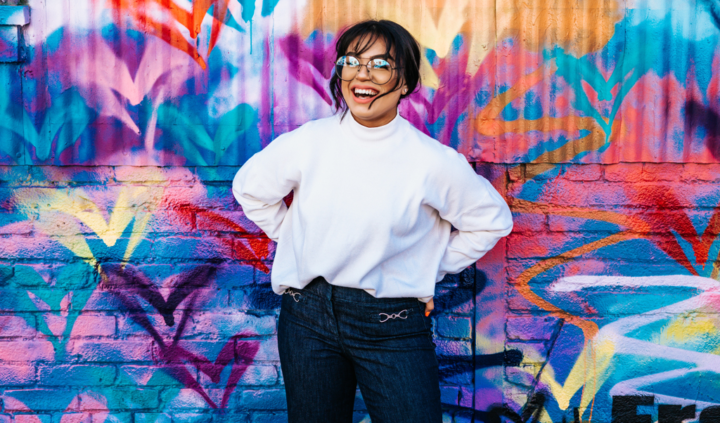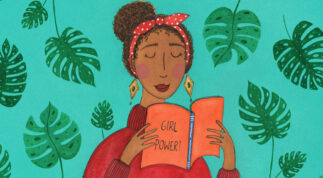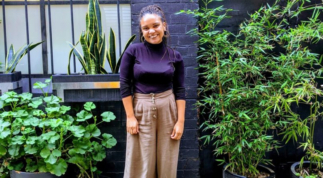Illustration Giselle Dekel
The situation we find ourselves in is unprecedented and testing. All of us have had to adjust to tremendous changes, bracing ourselves for a new normal. For teenagers, isolation has upped the ante when it comes to mental health. They’re missing their mates and the loves of their young lives, some are taking on a greater share of house and care work, learning remotely and worrying about missing out on teenage milestones. Isolation presents unique challenges for us all but particularly for those who were struggling with mental health issues even before COVID-19.
In April 2019, Headspace reported in Increasing Demand for Youth Mental Health: A Tide of Need that increasing numbers of young Australians are seeking help at an unprecedented rate. Their latest research showed that nearly one in three (32%) young Australians (12 to 25 year olds) are reporting high or very high levels of psychological distress, the highest percentage of which are in Victoria (35% compared to 33% in WA and SA, 31% in NSW and 29% in Queensland). Rates of psychological distress are significantly higher in young women at 38% compared to 26% in young men. The risk of mental illness also increases as adolescents age, becoming most prevalent in older teen years and particularly within young women, Aboriginal and Torres Strait Islander and LGBTIQA+ young people.
Mental health issues amongst young Australians have been a source of great concern for some time. In 2017, Mission Australia and the Black Dog Institute launched a Five-Year Mental Health Report which revealed that nearly 1 in 4 Australian teenagers met the criteria for having a ‘probable serious mental illness’ and that girls are ‘twice as likely as boys to meet the criteria for having a probable serious mental illness.’
‘Clearly and for a variety of reasons’, says Catherine Yeomans, Mission Australia Chief, ‘an awareness of gendered differences is a crucial component in the management of mental health issues.’ Both reports suggest that more and more teens are turning to online spaces for guidance. ‘What we need to make sure then’, says Yeomans, ‘is that when young people go to the internet they actually find evidence-based, self-help tools and ways to refer to help and get the support they need.’
Recognising worrying trends in mental health for young people, the Victorian Women’s Trust’s harm prevention entity, the Dugdale Trust for Women & Girls, launched Rosie in 2015. Rosie.org.au is a national initiative that connects teens with the best resources out there to help them navigate life’s tricky situations. Centred around a theme of respect — for your body & mind, for your relationships, at work and for the world we live in — Rosie empowers teens to be happy, healthy and armed with the right information to take up all of life’s opportunities with safety, dignity and respect.
Positive online spaces are uniquely positioned to support young people now and into the future — and as we face varying degrees of physical distancing over the coming months, these modes of connection are more important than ever.
We’ve put together a list of our favourite online resources to help young people look after their mental health during isolation, and we’ve also included some great mental health supports for parents and carers too.
For Teens
Chock full of blogs, articles, videos, tools & tips on things like mental health, supporting someone with a mental illness, social distancing, supporting your community, healthy friendships, breathing, meditation, yoga, positive self-talk, inspo, real life teen stories, support services + more. Great for teens of all ages.
Coronavirus #wellbeing (Kids Helpline)
Looking after your mental health, having fun & de-stressing, stress & safety (including dealing with lockdown in an unsafe home and dealing with parents having lost work), counsellor Q&A, coping strategies + more. Great for younger teens.
Coping During Coronavirus (reachout.com)
Dealing with uncertainty and bad world news, using your forums well, talking it out with people you trust plus stories from other young people sharing their experiences and coping strategies. Great for older teens.
How to cope with stress related to Coronavirus (Headspace)
Maintaining a healthy headspace, common reactions and how to deal with them, seeking help + support services. For teens of all ages.
COVID-19 and Youth Mental Health (UNICEF Voices of Youth)
A platform for young people aged 13-24 to share illustrations, drawing + other art content to support each other throughout the crisis.
For Parents and Carers:
Beyond Overwhelm Into Refuge (Dumbo Feather)
A compilation of short and long reads, Ted talks, things you can do, cool stuff that’s happening, meditations, podcasts for wisdom, poetry to get you through, free online courses and other gold.
Parental as Anything (ABC)
A podcast hosted by one of Australia’s favourite parenting authors & educators Maggie Dent. Maggie talks to parenting experts from around the world for tips & practical solutions to the challenges every parent is facing today.
Supporting Teenagers and Young Adults During the Coronavirus (childmind.org)
How to emphasise social distancing, understand their frustrations, support remote schooling, validate disappointment, help them practice mindfulness and manage worry.
Coronavirus Mental Wellbeing Support Service (Beyond Blue)
Maintaining your mental health as a small business owner, dealing with lost work, and tailored advice for talking to toddlers, tweens + teens about what’s happening.
How To Boost Mindfulness During the Coronavirus Outbreak (Refinery 29)
Using seemingly tedious moments to centre yourself, taking advantage of being forced to slow down and finding what works for you.
For Teens + Parents/Carers:
Weathering the Storm (Headspace app)
Excellent range of 1-20-minute meditations, free for everyone. It covers stress and feeling overwhelmed, navigating impermanence and change, the fundamentals of meditation and mindfulness, sleep + more.
Having frank conversations about mental health with the young people in our lives is an iso-activity worth doing. There’s a wealth of support available to help us while we hunker down to do our part and ride this out together. As more and more teens are empowered to speak honestly and seek support, the ages-old stigma around mental health weakens, making way for many more to get the help they need. That’s a new normal to look forward to.
Visit Rosie’s website or connect with Rosie on Instagram or Facebook.
If you feel like you need advice or someone to talk to about mental health and safety, you can find support here.




